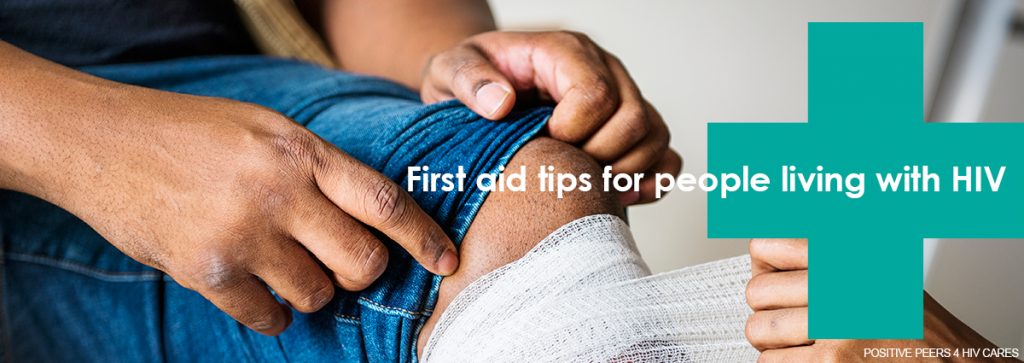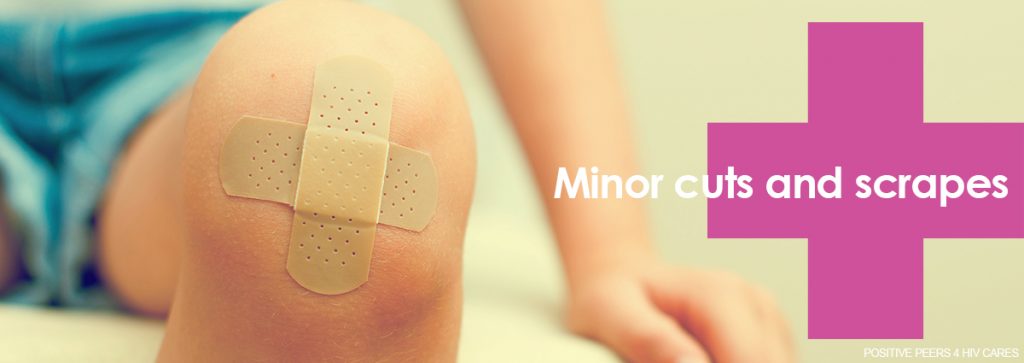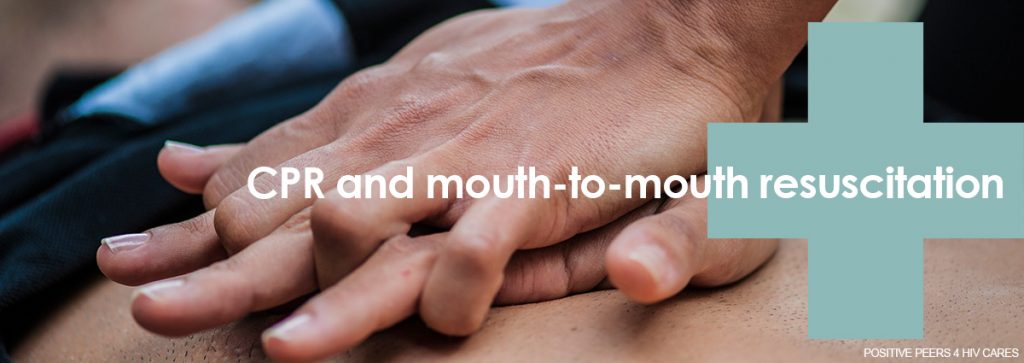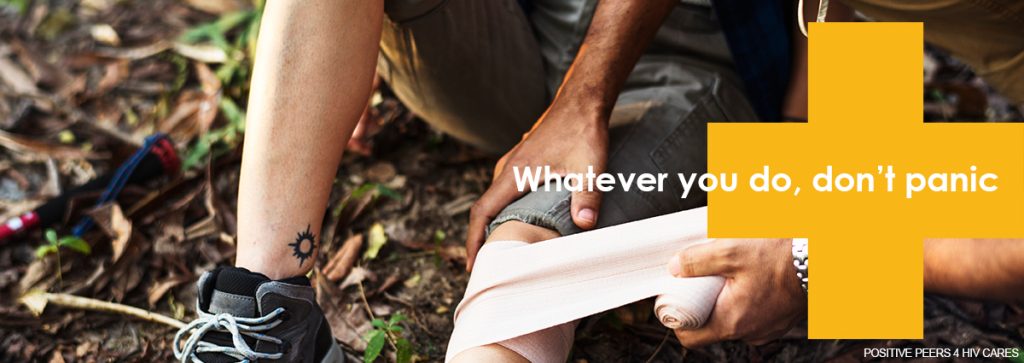
By: Jennifer McMillen Smith, LISW-S, HIV Social Worker at MetroHealth Medical Center and medically reviewed by Ann K. Avery, MD, Infectious Disease Physician at MetroHealth Medical Center
First aid can seem like a minefield when you’ve just been diagnosed with HIV. What should you do when you get a nosebleed or a small cut at the barbershop? What if you want to help somebody who’s been injured in an accident?
You just got diagnosed with an illness that’s in your blood, so it makes sense that you might fear your blood could infect somebody else. You might even wonder if mouth-to-mouth resuscitation and CPR are OK.
For the most part, you can relax. Unless you’re sharing needles or having condomless sex, it’s extremely difficult to infect somebody with HIV. The virus cannot survive in open air. HIV cannot pass through unbroken skin, so if your blood touches somebody’s arm or hand, for instance, there’s no way to infect them if their skin is intact.
And to be clear: saliva, tears, and sweat don’t transmit HIV. Also, think about it, if you’re undetectable, U=U, right? So if you can’t transmit during sex (assuming you’ve been undetectable for 6 months or longer) you’re not going to if you get a cut and somebody is helping you out.
The precautions you should use are the same as you’d encounter in any first-aid scenario.

Minor cuts and scrapes
Wash your hands first, just as you would with any injury.
Watch out for nails, broken glass, and other sharp objects that can break the skin. Whether you’re giving or receiving first aid, be extra careful about sharp edges and points.
Clean the area of the cut and cover with a dry, sterile dressing like a bandage.
If you have a nosebleed, hold your head back, pinch your nose, and give the bleed a couple of minutes to stop.
Clean and sanitize anything blood may have touched, regardless of who’s it is. There are many things that can live in blood, not just HIV. A solution of 1 part bleach to 10 parts water will do the trick.
Come join our private, stigma-free, supportive community.
Health management tools with medication & appointment reminders.
Social networking in a community conversation & private chats.
Larger injuries with more bleeding
When you’re dealing with a more serious cut that’s causing a lot of bleeding, put pressure on the cut as soon as possible to reduce the risk of blood loss.
Ideally, whoever is providing care should at least have sterile surgical gloves (again, this is what you’d use in any accident).
Clean-up after a heavy-bleeding incident should include thorough handwashing for anyone who has direct contact with blood or other bodily fluids. People should flush out their eyes and mouth if they had blood splash on those areas.

CPR and mouth-to-mouth resuscitation
Both of these techniques are safe for people with HIV to perform or receive during an event of medical distress.
Scientists have not recorded a single case of somebody passing HIV by mouth-to-mouth resuscitation. Similarly, there’s no way to pass HIV while conducting cardio-pulmonary resuscitation (CPR).
If you’re nervous about passing the virus by mouth-to-mouth, you shouldn’t be, but we understand if that gives you anxiety.

Whatever you do, don’t panic
Keeping a cool head, analyzing the injury, and applying proven care techniques are the foundations of safe first aid. Following standard hygiene techniques like washing before and after and using gloves will go a long way toward protecting everyone involved, including you!
You do need to be careful about blood and objects that cause bleeding, but that’s true of any injury, whether or not it’s the blood of someone who’s living with HIV.
More on HIV and first aid in this article from Pacific Medical Training.
Related Blogs:
Positive Peers is made possible through a U.S. Department of Health and Human Services Health Resources and Services Administration, HIV/AIDS Bureau Special Projects of National Significance (SPNS) Grant to The MetroHealth System. Click here for more information about the SPNS grant initiative.
Positive Peers is a private app for young people living with HIV. Learn how you can earn rewards for your participation.


